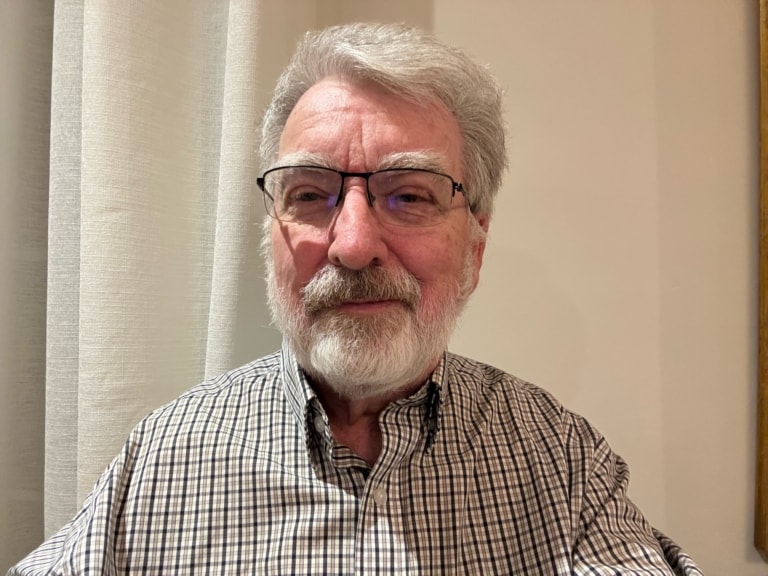Dr. William Brown
Special to The Lake Report
Much of my career was spent working in specialty clinics in Canada and the United States, such as neuromuscular, amyotrophic lateral sclerosis (ALS) and multiple sclerosis (MS) clinics at London Health Sciences, Tuft’s University Medical Center, St Joseph’s Hospital in Thunder Bay and more recently the McMaster University Medical Centre.
In every instance, the clinic co-ordinator was a nurse and without exception they were amazing. Most were graduates of four-year nursing programs and left nursing while they had families only to return 10 to 15 years later looking for a day job in a clinic.
In the years they worked in the clinics those nurses acquired a comprehensive understanding of whatever clinical problems the clinic looked after – often rivalling the best of the physicians in the clinic and certainly the residents-in-training.
Their job was part-physician, part-social worker, part-shepherd for patients through the health care system, and trusted confidante for patients and families. If that were not enough, they often became involved in research projects.
At the MS clinic I ran in Thunder Bay, I was privileged to work with two such nurses, each of whom during their time in the clinic became very knowledgeable about the clinical features and course of the disease.
One in particular made it her business to know every patient and their family and spent many hours listening to them, providing excellent advice, helping them navigate the services available to them and became the indispensable go-to person for most of the patients and their families when things went wrong.
These days nurse practitioners (NPs) have entered the health care system in force – largely driven by a shortage of family physicians and the realization that NPs provide valuable services quite aside from any supportive role they might have from time to time for the physicians in family health teams.
Originally, family health teams were created to sweeten the pie for physicians by offering a reasonably well-reimbursed, collegial environment in which they could work supported by a cast of social workers, psychiatric nurses and NPs to share the load while offering an expanded array of services impossible with the old model of solo physicians working strictly fee-for-service and supported, at best by a receptionist, if they were lucky.
One controversy simmering ever since the NPs came on the scene, centres on their expanding role north and south of the border. Because of the shortage of family physicians, NPs now staff an ever-increasing number of family health teams as the sole providers with little or no backup from physicians close at hand.
Certainly, that’s the case in remote areas of Northern Ontario where they provide excellent care for most of what counts, in the total absence of physician boots on the ground.
Long before NPs, there were nurses like my sister Sally, who worked in Yellowknife for several years and was the de-facto midwife who delivered countless babies, sometimes getting there and back by dogsled! What counts is experience and Sally and many other nurses and midwives have that in spades. Which brings me to NOTL.
From what I’ve observed locally, NPs seem to fill several roles – triaging and offering walk-in care for relatively common minor medical problems, renewing drugs for those drugs they’re authorized to prescribe, keeping track of and renewing vaccinations such as shots for flu and tetanus, and completing paperwork for patients.
In days past, family physicians might have seen these jobs as the part of the scut work of their practice, which took their time from the more urgent and “important” work of their practice.
Some family physicians continue to see NPs that way – adjuncts to their practice and not qualified to manage anything beyond the common and ordinary. Indeed, one family physician once told me, “NPs don’t know what they don’t know.” Maybe, but I venture the same holds true for some physicians all the time and all physicians some of the time!
According to an important recent study in the United States, NPs and family physicians see one another very differently.
As you might expect, NPs believe that they can take on much more responsibility, are more than capable of running family health teams, and should be paid accordingly.
Most family physicians take the opposite view. NPs should continue to work under the supervision of family physicians, because in the opinion of most family doctors, they simply aren’t trained to the same standards as family physicians and should not operate as independent caregivers.
But as NPs become better educated (more and more have master’s and PhD degrees) and acquire clinical experience equivalent to family physicians, the trend toward independent practice for NPs will, and should, grow.
The role of the NP is expanding. As patients, we need to be aware of these trends toward more participation and autonomy for NPs in our care. That’s the subject of the next Infohealth program on March 11 at 2 p.m. in the Niagara-on-the-Lake library given by nurse practitioner Erin Jarvis from our local family health team.
When I go to refresher courses in my specialty, at least one-third of the participants are NPs. Apparently, it’s the same for other specialties. There’s a lesson and wake up call for the future.
Dr. William Brown is a professor of neurology at McMaster University and co-founder of the Infohealth series held on the second Wednesday of each month at the Niagara-on-the-Lake Public Library.



.jpg)






